The Iraq Report: LGBT flag sparks outcry as embassy spat rages
Iraqi politicians and social media users have reacted negatively to an International Day Against Homophobia flag-raising stunt led by Western embassies in Baghdad earlier this week, which triggered calls for foreigners to "respect Iraqi culture and society".
Political figures, clerics, and even regular Iraqis joined in on the criticism and called on Western powers to apologise, highlighting the sharp differences between Muslim-majority democracies and the Western democratic powers that support them.
The Kurdish authorities have also come under fire after journalists were arrested after covering protests last week. International watch dogs have warned that press freedoms are now under threat as civil rights movements are exposed to repression and reporters are in turn persecuted for giving them coverage.
Despite being hailed in the mainstream media as a small success story within the overall tragedy of modern Iraq, Iraqi Kurdistan has often been beset by allegations of rights abuses, torture, and honour killings. Further negative attention at a time of economic hardship is likely to further erode rights.
LGBT flag triggers backlash
The colourful LGBTQ flag was raised in Baghdad on Sunday to mark the International Day Against Homophobia and Transphobia, prompting praise but mostly backlash online and in the halls of Iraqi power. The move was spearheaded by the Canadian and British embassies in the Iraqi capital, along with the European Union Delegation.
 |
LGBT rights are non-existent in Iraq, where homosexuality, transgenderism, and cross dressing are highly taboo among Muslims and minority Christians alike |  |
"Together with @CanadainIraq and @UKinIraq, today in Baghdad we join EU Delegations worldwide in raising the rainbow flag to mark the International Day Against Homophobia and Transphobia and highlight the rights of Lesbian Gay Bisexual Transgender people", the European Union Delegation to the Republic of Iraq said in a tweet on Sunday, which was also translated into Arabic.
The tweet showed the flag flutter alongside the flags of the EU, Canada and Iraq in Baghdad, prompting a barrage of tweets both in support and opposition to the historic move.
The tweet has since been deleted following a significant backlash by the Iraqi authorities and public figures, with many suggesting it contradicted the values of the local population.
"U must respect the values & traditions of this community. #Hint: when we reject these actions that's not mean we're inhumane," one user said.
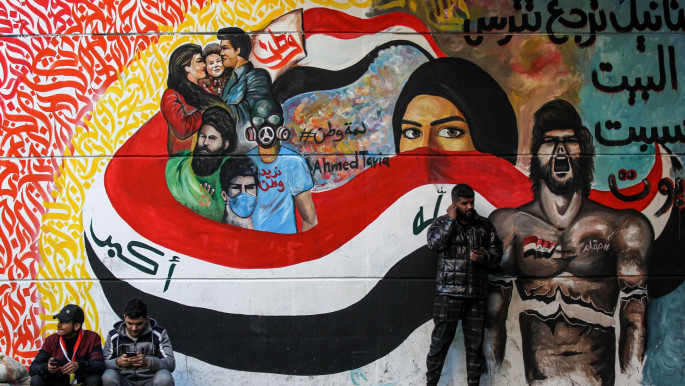 |
|
| Read more: The Iraq Report: Mustafa al-Kadhimi takes the helm in stormy political waters |
"Raising the flag of homosexuals in Iraq and in the month of Ramadan in particular is a disregard for moral values and a flagrant violation of the Iraqi constitution," another said.
"This is very disrespectful to the culture of Iraqi people and you can't encourage tolerance by being disrespectful," one user added.
Noting the public's overwhelming disapproval of the move by the Western powers, the Iraqi government was quick to demand an apology.
"We remind all the missions operating in Iraq to adhere by the laws of the country, and to follow diplomatic norms," it said.
Deputy Speaker of Parliament Bashir Haddad, meanwhile, described the move as a "clear provocation to the feelings of the Iraqi people".
"We do not allow the hoisting of the homosexual flag on our land…We have directed the foreign relations, religious affairs, and other relevant committees to take the necessary measures against this behaviour," he said in a statement.
"The [EU] mission must immediately lower the flag and apologise for their action which should not be repeated again," he added.
There is no direct legal provision in Iraq banning same-sex intimacy, but the law criminalises extra-marital sexual relations and does not provide for same-sex marriage.
 |
The situation of the Iraqi LGBTQ community is tenuous, and violence is a very real possibility and can erupt at any time against communities that are deemed fringe or taboo |  |
LGBT rights are non-existent in Iraq, where homosexuality, transgenderism, and cross dressing are highly taboo among Muslims and minority Christians alike.
In 2016, Human Rights Watch welcomed a statement by pro-Iran Shia cleric Moqtada al-Sadr urging an end to violence against gay and gender non-conforming people. Sadr said people should dissociate from homosexuals but "not attack them".
Yet Sadr's Sairoon parliamentary bloc claimed the flag-raising gesture was "unacceptable", coming during the holy Muslim fasting month of Ramadan.
"We refuse and condemn any behaviour that contradicts the culture and religion of the Iraq people. We ask the European mission in Iraq to lower the flag," read a Sairoon statement.
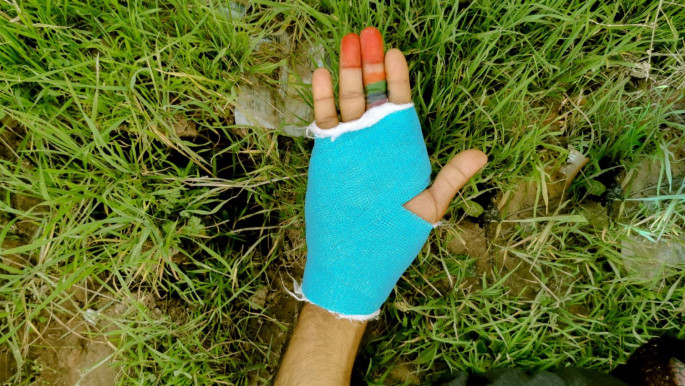 |
|
| Read more: 'We are here': The LGBT activists on the frontline of Iraq's revolution |
"We are in a blessed and holy month for all Muslims, and the foreign diplomatic missions in Iraq need to take into account the peculiarities of Muslim peoples," it added.
The cleric later issued a series of tweets on his official account, in which he took aim at the LGBTQ community saying they were "mentally ill and in need of recovery and guidance".
The raising of the flag was an "attack on all People of the Book, not just Muslims", he added, referring to Christians and Jews.
Militants associated with Sadr and other Shia militants have previously been condemned for violence against the LGBTQ community as well as a spate of horrific and brutal killings that targeted emos in 2012. Teenagers caught dressed as emos would be abducted before having their skulls crushed between two blocks of cement.
Iraq's most senior Shia religious authority has also previously issued edicts condemning homosexuality.
 |
Militants associated with Sadr and other Shia militants have previously been condemned for violence against the LGBTQ community as well as a spate of horrific and brutal killings that targeted emos in 2012 |  |
In 2006, Sistani declared sodomy and lesbianism "forbidden" and said that the LGBTQ community should be "killed in the worst, most severe way of killing."
Considering how influential Sistani is on Iraqi legislators, it is unsurprising that his edicts have also given force to constitutional clauses that state the civil liberties shall be constrained by "public morality" as codified by Islam.
This demonstrates how the situation of the Iraqi LGBTQ community is tenuous, and violence is a very real possibility and can erupt at any time against communities that are deemed fringe or taboo.
Kurdish press freedoms curbed
Further in Iraq's northern and autonomous Kurdistan Region, the Kurdish authorities have once again come under the spotlight after journalists were arrested for covering a protest last week.
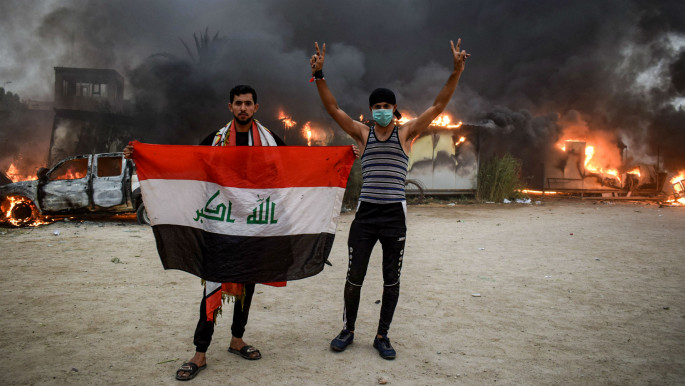 |
|
| Read more: The Iraq Report: Mustafa al-Kadhimi takes aim at pro-Iran militias |
The Committee to Protect Journalists (CPJ) has called on the Kurdish Iraqi authorities to immediately drop all charges against four journalists who were arrested last week for covering a protest in the city of Duhok.
Kurdish security forces carried out a mass arrest campaign at a rally on Saturday led by teachers against months of unpaid salaries.
Among those seized were at least eight journalists affiliated with media outlets linked to opposition parties including Kurdistan Islamic Union (KIU) and the Patriotic Union of Kurdistan (PUK).
Ramadhan Artesey, the journalists' lawyer, said security forces also confiscated the journalists' equipment. Four reporters were released several hours later and the remaining four were detained until Monday, when they were released on bail set at 2 million Iraqi dinars ($1,680).
The four were charged with participating in an unauthorised protest.
Miguel Delgado, CPJ's Middle East and North Africa Representative, said: "Once again the Kurdish authorities in northern Iraq have used the laws at their convenience to stamp out news coverage that makes the government uncomfortable."
Artesey told CPJ that the four reporters, named Akram Guli, Maher Sakfan, Omed Haji and Ahmed Sharnakhi, attended a court hearing on Monday together with teachers and activists who had also been arrested at the protest.
 |
Further in Iraq's northern and autonomous Kurdistan Region, the Kurdish authorities have once again come under the spotlight after journalists were arrested for covering a protest last week |  |
However the lawyer warned that the case was not yet over and the group would have to attend future trials.
Attacks against the press frequently occur in Iraqi Kurdistan and it has become an almost regular feature of the news cycle in the area.
The CPJ also ran a report in late 2019 warning that press freedom was "on the brink of extinction" after journalists were reported as having suffered beatings at the hands of KRG forces who did not want Kurdish journalists reporting on corruption, abuses, or even of asking questions about murdered journalist Widad Hussein who was killed in 2016 after being tortured to death.
Kurdish journalists have flocked to Europe after decrying conditions in Iraqi Kurdistan. DW reported last summer the story of Kamal Chomani, a Kurdish journalist who had received numerous threats for his reporting. Chomani said there was "no free media right now" in Kurdistan, a damning indictment of the KRG's press freedoms.
While Kurdistan was viewed as a bastion of calm and a model for the rest of Iraq after the US-led invasion in 2003, increasingly more stories have been emerging of its human rights abuses, corruption, and a lack of a free press, tarnishing its image as an oasis of peace.
With the Iraqi economy worse than it has been in years due to the double impact of rock bottom oil prices and the coronavirus pandemic, this is likely to cause a nervous political elite in Kurdistan to tighten controls ever further to ensure their grip on power remains unchallenged by a discontented population.
The Iraq Report is a fortnightly feature at The New Arab.
Click below to see the full archive.
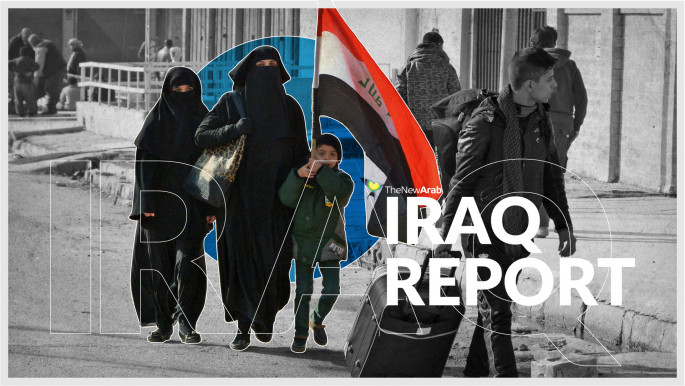 |
|
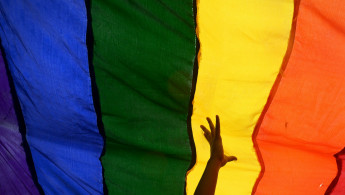

![President Pezeshkian has denounced Israel's attacks on Lebanon [Getty]](/sites/default/files/styles/image_684x385/public/2173482924.jpeg?h=a5f2f23a&itok=q3evVtko)



 Follow the Middle East's top stories in English at The New Arab on Google News
Follow the Middle East's top stories in English at The New Arab on Google News


